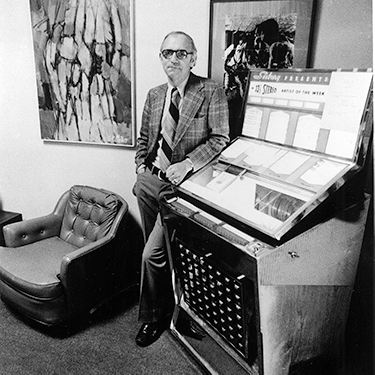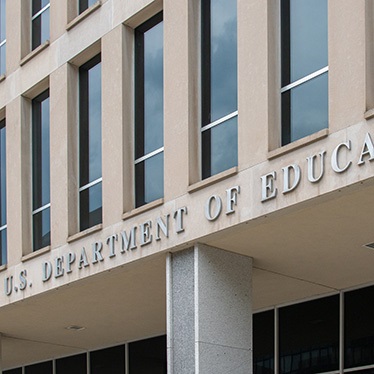Remembering a Maxwell Torchbearer: Michael O. Sawyer
June 18, 2024
The late professor was instrumental in shaping citizenship curriculum and impacted thousands of students in his more than 40 years on the faculty.
While many have helped to shape the Maxwell School’s first 100 years, perhaps no one person embodies the spirit, mission and purpose of the school as thoroughly as beloved alumnus and professor Michael O. Sawyer.

Sawyer spent almost his entire educational career at Maxwell—as student, faculty member and administrator—earning three degrees and retiring in 1990 after 42 years on the faculty.
A torchbearer across generations, Sawyer studied with esteemed faculty like Marguerite J. Fisher, Spencer D. Parratt and Roy Price, before helping to establish and nurture some of the school’s signature traditions.
He earned a bachelor’s degree in social science, then master’s and doctoral degrees in political science while serving as an instructor in the social science Ph.D. program. Among his students was late Professor Emeritus Ralph Ketcham, whom Sawyer helped to pioneer the school’s interdisciplinary, team-taught approach to citizenship education.
“I’ve known Mike ever since I came here for graduate school in 1951,” Ketcham said of Sawyer upon his passing in 2002. “He was so serious and wise about the craft of teaching, I worked with him on many courses. Having him involved raised both the quality of the course and the number of students who wanted to take it; his student following was the greatest of anyone I know.”
Sawyer became an instructor at Maxwell in 1948 and was promoted through the ranks to professor. He touched thousands of undergraduate students through a required first-year course on citizenship and an upper-level course in constitutional law, which he taught until his retirement.
He served for a time as director of the program in public affairs and citizenship; and in the 1980s, he served as vice chancellor to Melvin Eggers. In 1986, students voted him the Outstanding Professor of Syracuse University—the same year he received Syracuse University’s highest alumni honor, the George Arents Pioneer Medal.
“He was a teacher both in and out of the classroom and to students and colleagues alike,” said Dean Emeritus and University Professor John Palmer, who was dean of Maxwell at the time of Sawyer’s retirement in 1990. “Teaching was his enduring love, and in turn the primary source of the love and respect he has earned from all who have been fortunate to come into contact with him during his career here.”
“Teaching was his enduring love, and in turn the primary source of the love and respect he has earned from all who have been fortunate to come into contact with him during his career here.”
Dean Emeritus and University Professor John Palmer
Among the qualities that made him so popular were Sawyer’s intellect, caring and wit, which often accompanied some good-natured chiding.
“He had a jukebox in his office on the ground floor of Maxwell, and when students would come asking for an extension or give some excuse, he’d play ‘Cry Me a River,’” recalls friend and former student William “Bill” Brodsky ’65 B.A. (PSc)/L’68/H’24, an accomplished investment industries executive who chairs the Investment Committee of the Securities Investor Protection Corporation and who serves on Syracuse University’s Investment and Endowment Committee as a life trustee. “He believed that every person is special and should be heard,” said Brodsky. “He could always see the other side. Sometimes when I see what is going on in politics today, I wish I could say, ‘Michael, what do you think about this?’ He was always so optimistic.”
In 1988, Brodsky and his wife, Joan ’67/G’68 /H’24, spearheaded the campaign to establish the Michael O. Sawyer Chair of Constitutional Law and Politics. The chair is currently held by Thomas Keck, professor of political science.
“It used to be that almost every time I gave a public talk in Central New York, someone from the audience would approach me afterwards and introduce themselves as a former student of Sawyer’s,” said Keck. “They would invariably tell me what a transformative and inspirational impact he had on them as young adults, and it’s that legacy that I try to live up to in my own teaching.”
By Jessica Smith
Published in the Spring 2024 issue of the Maxwell Perspective
Related News
School News

Apr 18, 2025
School News

Apr 15, 2025
School News

Apr 2, 2025
